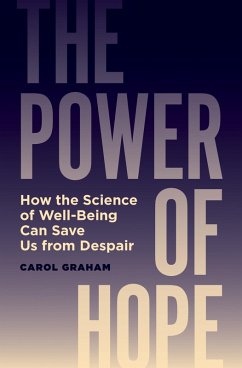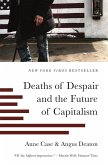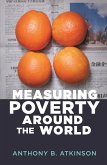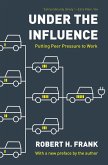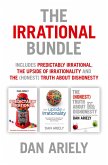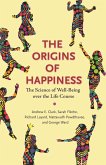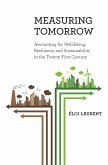Why hope matters as a metric of economic and social well-being
In a society marked by extreme inequality of income and opportunity, why should economists care about how people feel? The truth is that feelings of well-being are critical metrics that predict future life outcomes. In this timely and innovative account, economist Carol Graham argues for the importance of hope-little studied in economics at present-as an independent dimension of well-being. Given America's current mental health crisis, thrown into stark relief by COVID, hope may be the most important measure of well-being, and researchers are tracking trends in hope as a key factor in understanding the rising numbers of "deaths of despair" and premature mortality.
Graham, an authority on the study of well-being, points to empirical evidence demonstrating that hope can improve people's life outcomes and that despair can destroy them. These findings, she argues, merit deeper exploration. Graham discusses the potential of novel well-being metrics as tracking indicators of despair, reports on new surveys of hope among low-income adolescents, and considers the implications of the results for the futures of these young adults.
Graham asks how and why the wealthiest country in the world has such despair. What are we missing? She argues that public policy problems-from joblessness and labor force dropout to the lack of affordable health care and inadequate public education-can't be solved without hope. Drawing on research in well-being and other disciplines, Graham describes strategies for restoring hope in populations where it has been lost. The need to address despair, and to restore hope, is critical to America's future.
In a society marked by extreme inequality of income and opportunity, why should economists care about how people feel? The truth is that feelings of well-being are critical metrics that predict future life outcomes. In this timely and innovative account, economist Carol Graham argues for the importance of hope-little studied in economics at present-as an independent dimension of well-being. Given America's current mental health crisis, thrown into stark relief by COVID, hope may be the most important measure of well-being, and researchers are tracking trends in hope as a key factor in understanding the rising numbers of "deaths of despair" and premature mortality.
Graham, an authority on the study of well-being, points to empirical evidence demonstrating that hope can improve people's life outcomes and that despair can destroy them. These findings, she argues, merit deeper exploration. Graham discusses the potential of novel well-being metrics as tracking indicators of despair, reports on new surveys of hope among low-income adolescents, and considers the implications of the results for the futures of these young adults.
Graham asks how and why the wealthiest country in the world has such despair. What are we missing? She argues that public policy problems-from joblessness and labor force dropout to the lack of affordable health care and inadequate public education-can't be solved without hope. Drawing on research in well-being and other disciplines, Graham describes strategies for restoring hope in populations where it has been lost. The need to address despair, and to restore hope, is critical to America's future.
Dieser Download kann aus rechtlichen Gründen nur mit Rechnungsadresse in A, D ausgeliefert werden.
"Graham uses empirical evidence to demonstrate why hope is a good metric for measuring economic and social well-being. . . . Drawing on research in the disciplines of economics, sociology, and psychology, Graham addresses the critical problem of despair and proposes ideas on how to restore hope in America. . . . Of great interest to scholars and general readers alike."—Library Journal

